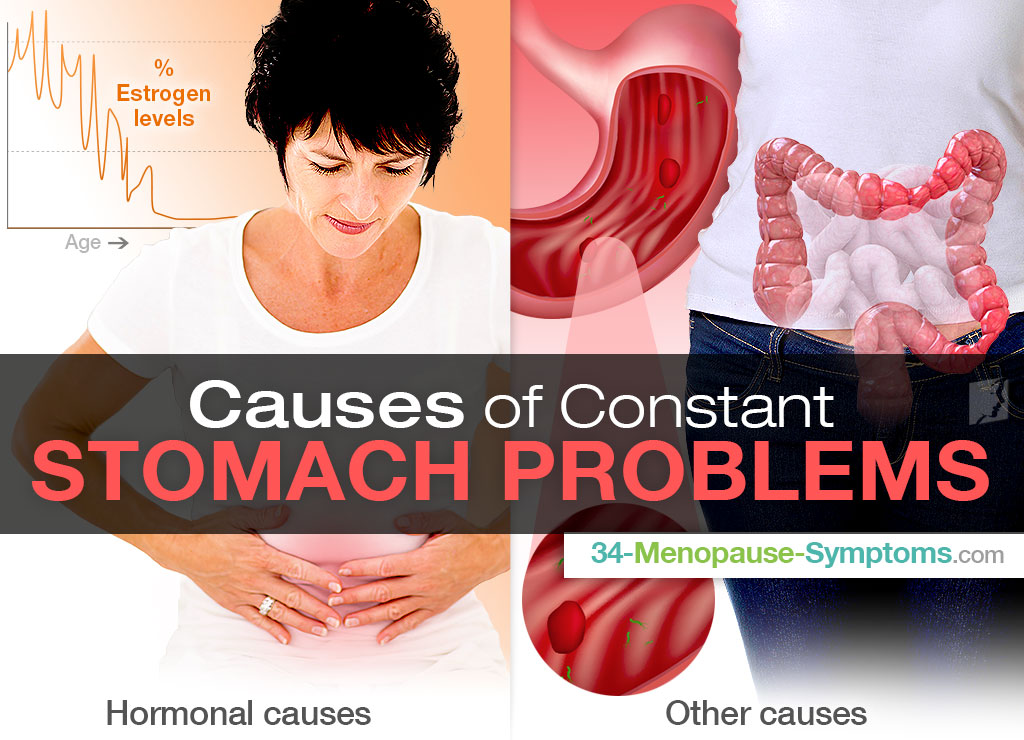Stomach problems can be difficult to manage because of how hard it is to ignore distress in your gastrointestinal system. If you're dealing with constant stomach problems, then you know about the difficulties, but there are a few more important things you should know as well.
Causes of Constant Stomach Problems
There are many potential causes of digestive problems:
Hormonal causes
For women going through menopause, stomach problems can be a constant worry. Although many people don't realize, the gastrointestinal tract and the hormones that control women's reproductive systems are closely linked. A lack of estrogen, which tends to occur during menopause, can be behind the symptoms of stomach problems. Another hormone called cortisol may be linked to stomach problems as well, most likely because raised levels of this hormone - which can occur due to low levels of estrogen - influences the stomach and digestive system to cause pain and other problems.
Other causes
While hormonal imbalances are a leading cause of digestive problems in women going through menopause, there are a number of other potential reasons why your stomach may be bothering you. There are dozens of stomach problems that may be at play, but some of the most common are:
Gas. Sometimes, stomach problems can be as simple as a case of gas. Certain foods are more likely to cause gas than others, and swallowing air - which can happen easily because of the way we drink or eat - may also be behind an abundance of gas. Often, gas causes pain and bloating.
Ulcers. Bacteria in the stomach, called Helicobacter pylori, can cause problems with the lining of the stomach and end up causing small, very painful sores in the stomach. These sores tend to cause significant pain, especially during and after eating.
Irritable bowel syndrome (IBS). This condition is a disorder that affects the large intestine. It can cause symptoms such as gas, bloating, or nausea, as well as weight loss and abdominal pain or cramping.
When to See a Doctor
Some conditions that cause constant stomach problems need medical intervention quickly in order to prevent any long-term damage or complications from arising. You should always see a doctor if you experience:
Severe pain in your stomach or abdomen
Vomiting or diarrhea that does not stop
Unexpected or severe weight loss
Blood in a bowel movement
Treating Stomach Problems
However, less serious stomach problems can be alleviated by home remedies or lifestyle changes. Many stomach problems can be helped by diet changes, such as drinking more water or eating more foods high in fiber. Additionally, adding foods like peppermint and ginger that soothe the stomach can have an ameliorating effect. Reducing stress can also have a beneficial impact on stomach problems.
While stomach problems are never fun to deal with, knowing more about the possible conditions and how to treat them can help you manage. Learn about more ways to help by changing five habits for good digestion.
Sources
- Heitkemper, Margaret M. (2012). Do Fluctuations in Ovarian Hormones Affect Gastrointestinal Symptoms in Women With Irritable Bowel Syndrome? Gender Medicine 6(2). Retrieved June 19, 2017 from https://www.ncbi.nlm.nih.gov/pmc/articles/PMC3322543/#
- Mayo Clinic . (2014).Irritable bowel syndrome. Retrieved June 19, 2017 from http://www.mayoclinic.org/diseases-conditions/irritable-bowel-syndrome/basics/causes/con-20024578
- Medline Plus. (2017).Stomach Disorders. Retrieved June 19, 2017 from https://med Mayo Clinic lineplus.gov/stomachdisorders.html




